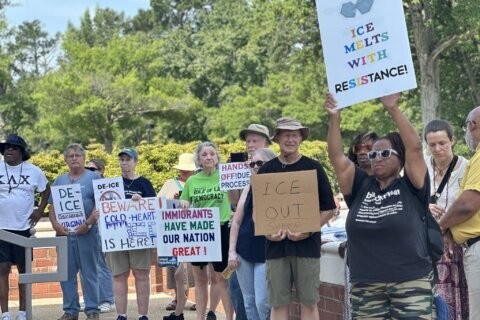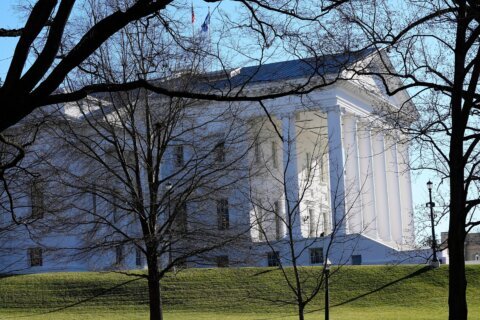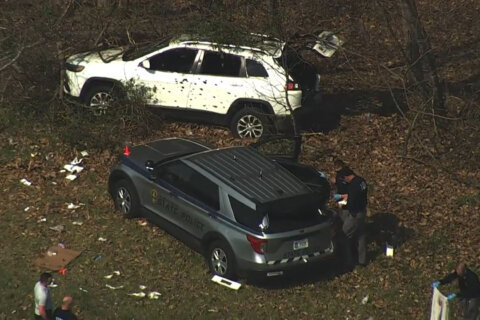The head of Virginia’s vaccination program said Friday that the rollout of COVID-19 vaccines has reached a new phase.
The commonwealth is at “the other side of the supply-demand curve,” Dr. Danny Avula said during a briefing.
Avula said 44% of the commonwealth’s population has had at least one dose of a COVID-19 vaccine, and out of the eligible population (16 and older), that number jumps to 57%. And almost every health district is done with preregistration, Avula said: “If you want an appointment, you can make it — in some cases the same day or the next day.”
Whereas for the first few months of the year the job was to get enough vaccines to the people who wanted them, he said, “We are pivoting all over Virginia” to make it easier for people to get vaccinated, and to convince them of the importance of getting the shots.
Avula said efforts have already started, and will continue, to focus on neighborhoods, communities and primary care providers.
Surveys show people trust their own doctors, Avula said, and for example, Pfizer will soon make their vaccines, which come in packages of 1,170, into smaller increments that doctors’ officers and smaller providers would be willing to take on. “More providers will be willing to take small amounts of the vaccine and have it available.”
He predicted that soon vaccinations would be happening at mobile centers, farmers markets, polling places and more. “Convenience is such an important piece,” Avula said; many people who haven’t gotten vaccinated “not because they don’t want to, but because of convenience.”
Avula said the difficulty in getting vaccines to people has multiple causes: In the Black and Latino communities, he said, there was once “hesitancy over historical problems” between those communities and the medical community, but that conscious unwillingness to get the vaccines went down between December and March. Problems in those communities are less about hesitancy and more about access.
Among “rural, conservative-leaning people who identify as evangelical Christians,” about 40% of whom say they won’t get vaccinated, Avula said, there’s more of a political hesitancy, which requires a different plan – a non-judgmental approach that leans on teachers, doctors and pastors. “It’s hard work.”
J&J and young people
Use of the Johnson & Johnson one-dose vaccine has resumed in Virginia after the pause recommended by the Centers for Disease Control and Prevention earlier this month, and while it’s not known yet how much of an effect the pause had on Virginia’s vaccination numbers, or Virginians’ willingness to get the shots, he said it put a dent in the plans to get students at colleges and universities vaccinated before their classes ended.
That’s important, he said, because young, healthy adults generally think “if they get it they’ll be fine. And by and large they’re right.” But the number of people vaccinated is what brings about herd immunity, and another surge “would be the worst.”
Young people also have more risky behavior, he added, and that combined with the increased contagiousness of the variants is leading to a dominance of the newer strains.
Avula also said the CDC “continues to affirm” that the existing vaccines would be approved for children down to 12 years old by mid- to late May, probably giving authorities “a real chance” for in-school vaccinations before classes end for the summer.
‘I continue to be encouraged’
“The work is just as important, and a lot harder” now, compared with the early days of the rollout, when “everyone was clamoring for it,” he said. The job now is “going to be slower and a lot more challenging.”
Even so, Avula said, “I continue to be encouraged by the way the guidance has been changing.” After the new CDC guidance was announced, he’s seeing people outside without masks, and said, “It feels like progress.”
Avula was quick to point out that there have only been 9,200 “breakthrough infections” in the more than 100 million people who have been vaccinated. Early reports in the development of the vaccine predicted an efficacy rate in the low 90s, and the reality has been more like 99.993%.
“It’s really astounding how effective vaccination has been,” Avula said.
- Sign up for WTOP alerts
- Latest coronavirus test results in DC, Maryland and Virginia
- Coronavirus vaccine FAQ: What you need to know
- Latest vaccination numbers in DC, Maryland and Virginia
Looking for more information? D.C., Maryland and Virginia are each releasing more data every day. Visit their official sites here: Virginia | Maryland | D.C.








